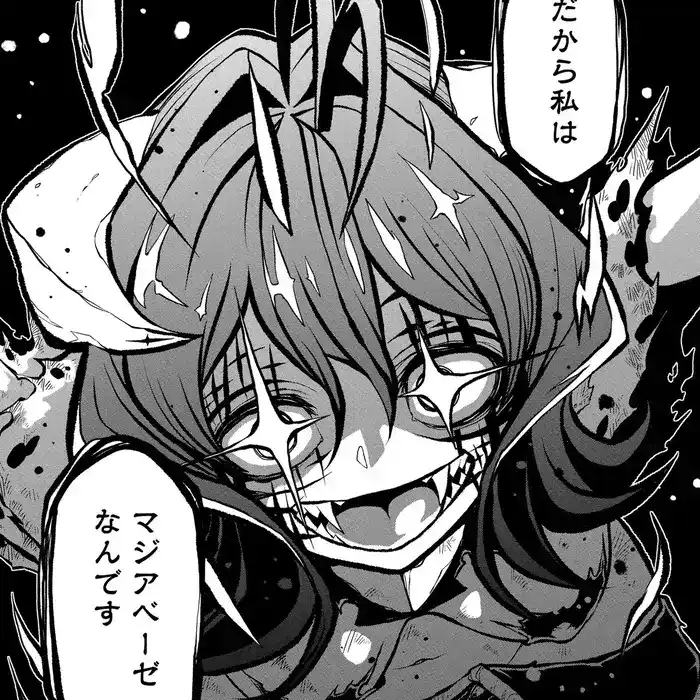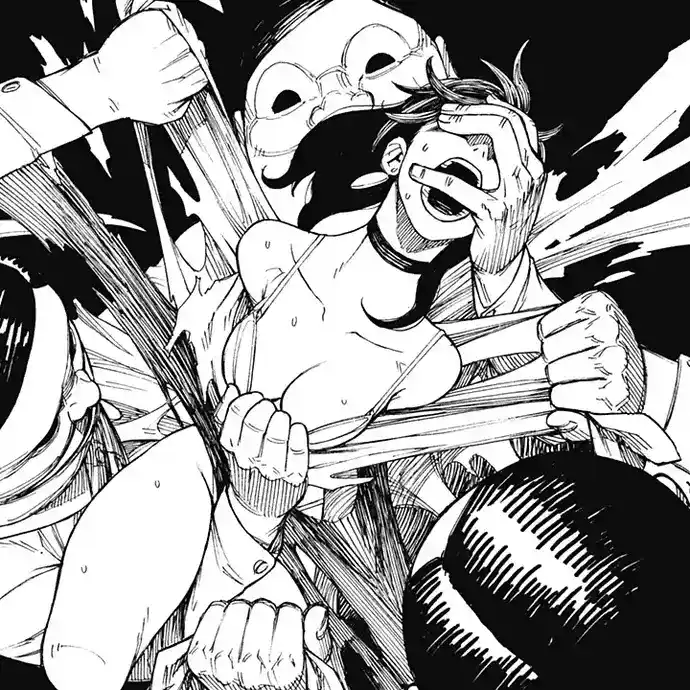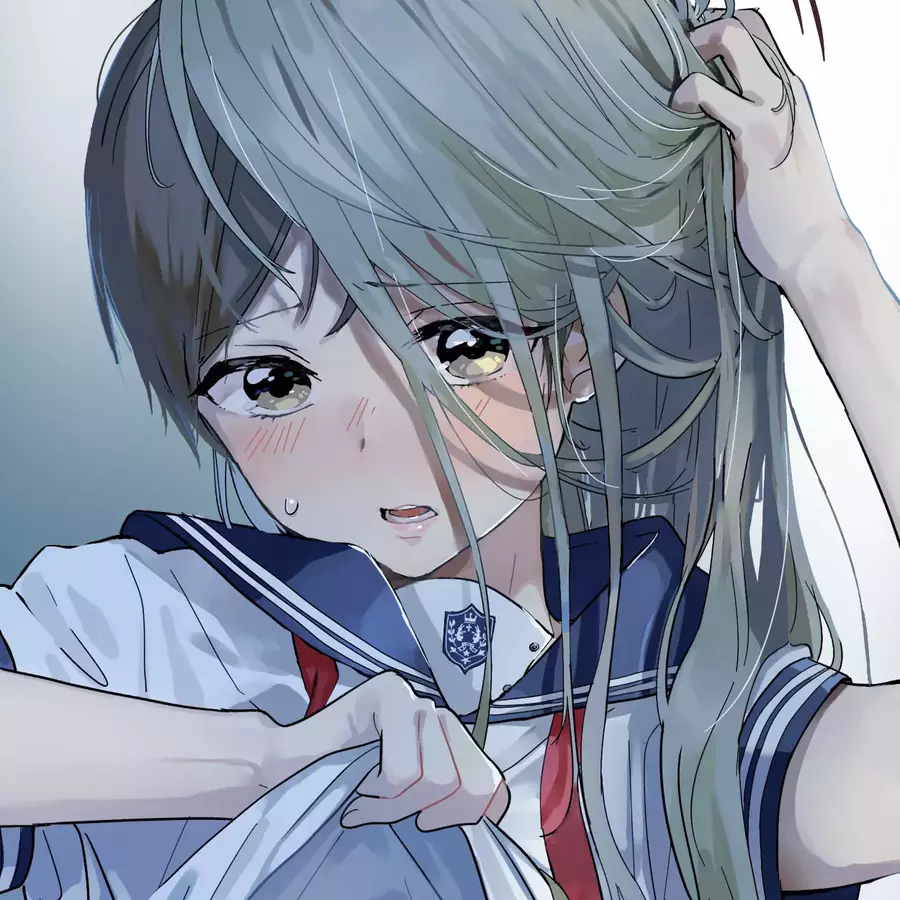New
Aug 29, 2024 8:52 PM
#1
| Don't get me wrong. Romaji does have its use in teaching people how to speak the Japanese language. However, there are times where I feel like Romaji gets used as if people believe it's actual English, and it has annoyed me since 2014. I got into Sailor Moon ever since I saw the trailer for Crystal and have taken the time to watch the entire 1990s anime. When I browsed through the Sailor Moon wiki just out of mere curiosity, it always bugs me that most of the time when there is text about the Sailor Guardians, instead of referring to them as Guardians, the authors of the text use "Senshi," which is how you pronounce the Japanese word for Guardian. It begs the question: Why not use "Guardian," so the entire text is truly fully English? That was just one example of my stance against Romaji. When it comes to my activity here on MyAnimeList, I make sure that I don't end up having this habit, so that my writing does not have any Romaji in it. For instance, when I'm reviewing an anime tagged the "Isekai" genre, I don't say "Isekai" in the review. Instead, I call it "Other World." Another instance is my list of favorite anime music that I made not too long ago on my profile page. I made sure to have the names of songs be in English instead of the Romaji names that some of them are labeled as on the pages for the anime they're used for. This is just my opinion of Romaji. I know why it exists, but it does bug me that it has become a normal part of the way people in the anime community talk. Even in the Sound section of the Review Guidelines, it's stated that it's okay to refer to the voice actors as "Seiyu." Just so we're clear, I'm not trying to force this habit to stop. Feel free to tell me what your thoughts of this post are. I have a feeling that my dislike for Romaji is possibly a hot take. |
| I am using the best palette swap. |
Aug 29, 2024 9:01 PM
#2
Peach_Main said: Romaji does have its use in teaching people how to speak the Japanese language. I never encountered romaji in my studies. |
| その目だれの目? |
Aug 29, 2024 9:04 PM
#3
Reply to Lucifrost
Peach_Main said:
Romaji does have its use in teaching people how to speak the Japanese language.
Romaji does have its use in teaching people how to speak the Japanese language.
I never encountered romaji in my studies.
| @Lucifrost What I meant to say was that Romaji is used to show people how to pronounce Japanese words. https://en.wikipedia.org/wiki/Romanization_of_Japanese |
| I am using the best palette swap. |
Aug 29, 2024 9:17 PM
#4
Peach_Main said: For instance, when I'm reviewing an anime tagged the "Isekai" genre, I don't say "Isekai" in the review. Instead, I call it "Other World." Yet you say "anime" instead of "cartoon". Curious. |
Aug 29, 2024 9:27 PM
#5
| The only time it kinda bothers me is if it's tacked onto the English name of a series. I'm not going to call it "Demon Slayer: Kimetsu no Yaiba". It's either Demon Slayer or Kimetsu no Yaiba. Pick one or the the other instead of making it unecessarily longer. Same with KonoSuba. I'm never going to call that series "God's Blessing on This Wonderful World!" or it's full Japanese name, but putting "KonoSuba" in front of the English title just looks dumb to me. |
Aug 29, 2024 9:28 PM
#6
| im the opposite. i hate it when the english equivalent of words are used. words like senshi, isekai, the common words are fine if they are in romaji. |
 The end of an era. Thank you Wit, Mappa and Isayama. Feeling half happy, half sad. Kawaii waifus and precious best girls <3333 |
Aug 29, 2024 9:37 PM
#7
Reply to FanofAction
The only time it kinda bothers me is if it's tacked onto the English name of a series. I'm not going to call it "Demon Slayer: Kimetsu no Yaiba". It's either Demon Slayer or Kimetsu no Yaiba. Pick one or the the other instead of making it unecessarily longer. Same with KonoSuba. I'm never going to call that series "God's Blessing on This Wonderful World!" or it's full Japanese name, but putting "KonoSuba" in front of the English title just looks dumb to me.
| @FanofAction It's because of name/brand recognition. Either that or you essentially make a fanbase schism. |
thewiruAug 29, 2024 11:11 PM
Aug 29, 2024 9:39 PM
#8
| I can understand and speak in Japanese but I can't read or write Japanese.. I can only understand written Japanese if it's in romaji.. Also romaji have been used lots of times in mystery anime to solve puzzles and dying messages.. I figured it out before kindaichi in one instance because kindaichi was interpretating in Kanji and then katakana but I saw the key to the puzzle was romaji |
Aug 29, 2024 9:41 PM
#9
| I don't have an issue with Romaji that people use naturally, like "Isekai", "Anime" or various vocabulary people habe picked up while listening to Japanese. We use loan words from other languages all the time. The Japanese do it too and butcher our words with their Katakana (another loan word). What I don't accept is using Romaji in translations where you could reasonably replace it with proper English words. I don't like if anime or song titles are just written out in Romaji either. (If it's already too established I still use it to avoid confusion, even though I don't like it.) Treating Japanese like something you can't translate makes everything lose meaning. |
VaturnaAug 29, 2024 9:54 PM
Aug 29, 2024 9:42 PM
#10
Reply to thewiru
@FanofAction
It's because of name/brand recognition.
Either that or you essentially make a fanbase schism.
It's because of name/brand recognition.
Either that or you essentially make a fanbase schism.
| @thewiru Doesn't make much sense when so many series don't do that. |
Aug 29, 2024 9:43 PM
#11
| It looks extremely confusing and random to someone who don't know how to read it. Anyway, I don't have too much issues with it. |
 |
Aug 29, 2024 10:21 PM
#12
| sometimes when i watch anime on platforms like Hulu, they will sometimes have romaji subs for the opening, which is pretty ugly and honestly pointless. I'm fine with romanized transcriptions for common loan words from the Japanese language like sushi, karaoke, anime. Heck, I probably also used 'seiyuu' in lieu of saying 'voice actress' in some of my previous posts too. |
| You can buy lossless digital music from your favorite Japanese artists on https://ototoy.jp/. The songs are all DRM-free and you can re-download your purchased albums as you wish. Show your support to your favorite artist if you can! ps. if you are looking for Japanese albums, you have to search it in Japanese (not romaji). Just copy and paste the name. For those who want to learn Japanese through anime Resources for learning the language |
Aug 29, 2024 10:36 PM
#13
Reply to FanofAction
@thewiru Doesn't make much sense when so many series don't do that.
| @FanofAction The ones that do are the ones that are already well known for their original name or nickname. |
Aug 29, 2024 10:41 PM
#14
Reply to thewiru
@FanofAction
The ones that do are the ones that are already well known for their original name or nickname.
The ones that do are the ones that are already well known for their original name or nickname.
| @thewiru Huh. I guess that makes sense. Still looks weird to me though. |
Aug 29, 2024 11:23 PM
#15
| The sailor moon example is dumb I agree. I think it's part of the anti-localization obsession some weebs have which leaves texts half-untranslated because of >muh you can't render that accurately in English because there's some deep culture behind it crap they like to pull as if the common word for "warrior" (that's what senshi 戦士 actually means) is somehow untranslatable. I can get behind the "isekai" thing because it has become part if anime jargon and is mostly used to refer to something very specific. Yes it's sometimes used for stuff like Dunbine but when most people say "isekai" they mean "boring loser transported to generic jrpg world with game mechanics and (optional) becomes OP by grinding" The seiyu thing I can't get behind. The english word exists, describes the same thing and is even made up of the same words. In any case I don't think that's the fault of transliteration (what romaji is). Transliteration has existed as long as written language has existed and we won't get rid of it because weebs are doing weeb things. |
Theo1899Aug 30, 2024 12:52 AM
| MEA·MENTVLA·INGENS·EST |
Aug 29, 2024 11:27 PM
#16
Aug 29, 2024 11:59 PM
#17
Reply to DreamingBeats
sometimes when i watch anime on platforms like Hulu, they will sometimes have romaji subs for the opening, which is pretty ugly and honestly pointless.
I'm fine with romanized transcriptions for common loan words from the Japanese language like sushi, karaoke, anime. Heck, I probably also used 'seiyuu' in lieu of saying 'voice actress' in some of my previous posts too.
I'm fine with romanized transcriptions for common loan words from the Japanese language like sushi, karaoke, anime. Heck, I probably also used 'seiyuu' in lieu of saying 'voice actress' in some of my previous posts too.
DreamingBeats said: sometimes when i watch anime on platforms like Hulu, they will sometimes have romaji subs for the opening, which is pretty ugly and honestly pointless. It may be ugly and pointless to you, but many people have asked for this to be done which is why it now is. Plenty of us want to be able to speak the language correctly when conversing or singing a Japanese song. |
Aug 30, 2024 12:33 AM
#18
Peach_Main said: the authors of the text use "Senshi," which is how you pronounce the Japanese word for Guardian Ehhh, if you mean senshi as in 戦士 that does not even mean guardian, that's more like warrior (I looked up the wiki and apparently even in the wiki they say sailor soldier at the beginning, but later in the article they change it to sailor guardian. I don't really know what's up with that). I think this is a perfect example of what I am going to talk about, imperfect translation. Even though guardian and warrior are somewhat related, its a big image difference isn't it? A guardian is someone who's role is to protect, a warrior might also fight for their own reasons. Here's my 2 cents. Romaji is a compromise for when you want to refer to a Japanese concept but the audience cannot read Japanese. For example, if a character wears Geta what am I supposed to say other than Geta? Am I supposed to say "wooden sandals" cause that's close enough, or whatever the englishization of geta is (not sure if there is one). I myself strongly dislike this kind of bastardization. Its a Japanese type of footwear called Geta, it doesn't need another word. By calling it by its original name you are paying respects to the original. Ok but what about generic words like senshi and seiyuu? These I am a bit more on the fence about. To me the main reason to use romaji is to preserve the uniqueness and the precise meaning of the original, or in the case where there is no equivalent word in english, so it makes no sense to say "in episode X character Y is seen drinking mizu", water is water, it's pretentious and dumb to use a Japanese word for it. Conversely it makes all the sense in the world to distinguish between katana and a sword (even though it is literally a Japanese type of sword). I personally disagree with your translation of isekai as another world, because even though that's what it literally means, at this point isekai is a recognizable term with a specific meaning, another world is just a generic literal translation. I am even more opposed to your translation of song titles because once again, even if you mean well, you are replacing something recognizable with a generic literal translation. Like for example, if I told you I read a book called "A really long journey" do you know what I'm talking about? No? I just translated odyssey ( as in homers odyssey) into English. But Odyssey is already an English word? It is a loan word, but the original word is Greek, so what gives? Is the fact that its been englishized from Odysia to odyssey enough to make it ok then? I hope you can see that at the very least, its not a problem that is so clear cut that you can say your approach is objectively correct. Whatever you choose there are upsides and downsides. If you translate you make the words legible for an English audience but you risk losing the nuances of the original. If you don't translate you honor the original but many people will not be able to understand the meaning. For me, as a learner of Japanese, I would happily write all these words that don't have English equivalents in Japanese, but if I did that 90% of the people reading won't be able to understand what I am talking about, so I use romaji. In general I will always avoid the English/localized names because they do not necessarily reflect the original, the original work is Japanese, nothing will ever change that, and I see it fit to pay respect to the original, not the version big corpos made so that the masses can enjoy it. |
Aug 30, 2024 1:08 AM
#19
| @rsc-pl Damn bro I hate dubs too (I play Metro in Russian and the Witcher in Polish so it's not just for anime, I just dislike the concept) but you speak like dubs murdered your sister or something. Be a little more charitable please. Also is it really a strawman when there are fan translated manga that have to include Tolkien sized appendices to explain why so much of the vocabulary has been left as is? I don't like butchering the translation which is why I avoid even releases I'm paying for once I realize that something's wrong but I feel like the other side is very often overcorrecting in their effort to preserve the original work. |
| MEA·MENTVLA·INGENS·EST |
Aug 30, 2024 1:32 AM
#20
| Romaji has it's practical uses. As an example been currently living in north America for quite awhile and I don't have a Japanese QWERTY keyboard. So communicating with people in Japan who are not well-versed specifically with English but are familiar enough with the roman alphabet when a program isn't present to convert Romaji into a kana conversion or vise versa, it makes things a lot easier. Specifically because I am not very literate with hiragana and katakana but understand the language spoken. Without Romaji it would have made communicating with some Japanese relatives extremely hard through email or even texting. |
ColourWheelAug 30, 2024 2:03 AM
Aug 30, 2024 6:07 AM
#21
Reply to thewiru
Peach_Main said:
For instance, when I'm reviewing an anime tagged the "Isekai" genre, I don't say "Isekai" in the review. Instead, I call it "Other World."
For instance, when I'm reviewing an anime tagged the "Isekai" genre, I don't say "Isekai" in the review. Instead, I call it "Other World."
Yet you say "anime" instead of "cartoon".
Curious.
| @thewiru If these Japanese animations really weren't meant to be called "anime," then I guess there is a lot more for me to learn about them. I wouldn't really choose "cartoon" as an alternative and I feel it only fits best for the comedy genre. |
| I am using the best palette swap. |
Aug 30, 2024 6:24 AM
#22
Reply to FanofAction
The only time it kinda bothers me is if it's tacked onto the English name of a series. I'm not going to call it "Demon Slayer: Kimetsu no Yaiba". It's either Demon Slayer or Kimetsu no Yaiba. Pick one or the the other instead of making it unecessarily longer. Same with KonoSuba. I'm never going to call that series "God's Blessing on This Wonderful World!" or it's full Japanese name, but putting "KonoSuba" in front of the English title just looks dumb to me.
| @FanofAction Nisekoi is also a funny case since its sometimes titled as "Nisekoi: False Love" when "Nisekoi" literally means false love, so it's technically being called False Love: False Love. I know for sure nobody will ever call it False Love. Also, I tried typing False Love in the search bar on MyAnimeList, and the first search result actually is the first season of the anime. |
| I am using the best palette swap. |
Aug 30, 2024 6:27 AM
#23
Reply to RainyEvenings
I can understand and speak in Japanese but I can't read or write Japanese.. I can only understand written Japanese if it's in romaji..
Also romaji have been used lots of times in mystery anime to solve puzzles and dying messages..
I figured it out before kindaichi in one instance because kindaichi was interpretating in Kanji and then katakana but I saw the key to the puzzle was romaji
Also romaji have been used lots of times in mystery anime to solve puzzles and dying messages..
I figured it out before kindaichi in one instance because kindaichi was interpretating in Kanji and then katakana but I saw the key to the puzzle was romaji
| @RainyEvenings That is a pretty neat way to utilize Romaji. |
| I am using the best palette swap. |
Aug 30, 2024 6:42 AM
#24
Reply to Anjuro
Peach_Main said:
the authors of the text use "Senshi," which is how you pronounce the Japanese word for Guardian
the authors of the text use "Senshi," which is how you pronounce the Japanese word for Guardian
Ehhh, if you mean senshi as in 戦士 that does not even mean guardian, that's more like warrior (I looked up the wiki and apparently even in the wiki they say sailor soldier at the beginning, but later in the article they change it to sailor guardian. I don't really know what's up with that). I think this is a perfect example of what I am going to talk about, imperfect translation. Even though guardian and warrior are somewhat related, its a big image difference isn't it? A guardian is someone who's role is to protect, a warrior might also fight for their own reasons.
Here's my 2 cents. Romaji is a compromise for when you want to refer to a Japanese concept but the audience cannot read Japanese. For example, if a character wears Geta what am I supposed to say other than Geta? Am I supposed to say "wooden sandals" cause that's close enough, or whatever the englishization of geta is (not sure if there is one). I myself strongly dislike this kind of bastardization. Its a Japanese type of footwear called Geta, it doesn't need another word. By calling it by its original name you are paying respects to the original.
Ok but what about generic words like senshi and seiyuu? These I am a bit more on the fence about. To me the main reason to use romaji is to preserve the uniqueness and the precise meaning of the original, or in the case where there is no equivalent word in english, so it makes no sense to say "in episode X character Y is seen drinking mizu", water is water, it's pretentious and dumb to use a Japanese word for it. Conversely it makes all the sense in the world to distinguish between katana and a sword (even though it is literally a Japanese type of sword). I personally disagree with your translation of isekai as another world, because even though that's what it literally means, at this point isekai is a recognizable term with a specific meaning, another world is just a generic literal translation. I am even more opposed to your translation of song titles because once again, even if you mean well, you are replacing something recognizable with a generic literal translation. Like for example, if I told you I read a book called "A really long journey" do you know what I'm talking about? No? I just translated odyssey ( as in homers odyssey) into English. But Odyssey is already an English word? It is a loan word, but the original word is Greek, so what gives? Is the fact that its been englishized from Odysia to odyssey enough to make it ok then?
I hope you can see that at the very least, its not a problem that is so clear cut that you can say your approach is objectively correct. Whatever you choose there are upsides and downsides. If you translate you make the words legible for an English audience but you risk losing the nuances of the original. If you don't translate you honor the original but many people will not be able to understand the meaning.
For me, as a learner of Japanese, I would happily write all these words that don't have English equivalents in Japanese, but if I did that 90% of the people reading won't be able to understand what I am talking about, so I use romaji. In general I will always avoid the English/localized names because they do not necessarily reflect the original, the original work is Japanese, nothing will ever change that, and I see it fit to pay respect to the original, not the version big corpos made so that the masses can enjoy it.
| @Anjuro Anjuro said: Ehhh, if you mean senshi as in 戦士 that does not even mean guardian, that's more like warrior (I looked up the wiki and apparently even in the wiki they say sailor soldier at the beginning, but later in the article they change it to sailor guardian. I don't really know what's up with that). I think this is a perfect example of what I am going to talk about, imperfect translation. Even though guardian and warrior are somewhat related, its a big image difference isn't it? A guardian is someone who's role is to protect, a warrior might also fight for their own reasons. Before Sailor Moon Crystal came out, the word actually was translated as "Soldier" for the first anime adaptation from the 1990s. The official full English name for the first anime was Pretty Soldier Sailor Moon. Then Crystal came out and the decision was made to use "Guardian" instead, so the second anime in English is officially called Pretty Guardian Sailor Moon Crystal. In fact, I'm pretty sure Viz Media uses "Guardian" when they did the English dub for both adaptations. Since a guardian's role is to protect, I guess it fits what the protagonists of Sailor Moon do. Regardless, I'm okay with either word. Definitely preferable over was DiC did to the first anime back then calling the characters "Sailor Scouts." I don't care if there are people who grew up with that version. I am never calling them scouts. |
| I am using the best palette swap. |
Aug 30, 2024 6:47 AM
#25
Reply to Vaturna
I don't have an issue with Romaji that people use naturally, like "Isekai", "Anime" or various vocabulary people habe picked up while listening to Japanese. We use loan words from other languages all the time. The Japanese do it too and butcher our words with their Katakana (another loan word).
What I don't accept is using Romaji in translations where you could reasonably replace it with proper English words. I don't like if anime or song titles are just written out in Romaji either. (If it's already too established I still use it to avoid confusion, even though I don't like it.)
Treating Japanese like something you can't translate makes everything lose meaning.
What I don't accept is using Romaji in translations where you could reasonably replace it with proper English words. I don't like if anime or song titles are just written out in Romaji either. (If it's already too established I still use it to avoid confusion, even though I don't like it.)
Treating Japanese like something you can't translate makes everything lose meaning.
Vaturna said: If it's already too established I still use it to avoid confusion, even though I don't like it. This is the only reason I would choose to use pinyin over a system that spells words the way they're pronounced. |
| その目だれの目? |
Aug 30, 2024 6:47 AM
#26
rsc-pl said: No, I'll use seiyuu to be sure that people will know that I'm talking about original voice actors, not the dub trash. If there is a Japanese voice actor / actress I really like, I will refer to them by their name. That should be enough to show readers that I'm talking about the Japanese voice, and not the English dub. |
| I am using the best palette swap. |
Aug 30, 2024 6:48 AM
#27
Reply to Anjuro
Peach_Main said:
the authors of the text use "Senshi," which is how you pronounce the Japanese word for Guardian
the authors of the text use "Senshi," which is how you pronounce the Japanese word for Guardian
Ehhh, if you mean senshi as in 戦士 that does not even mean guardian, that's more like warrior (I looked up the wiki and apparently even in the wiki they say sailor soldier at the beginning, but later in the article they change it to sailor guardian. I don't really know what's up with that). I think this is a perfect example of what I am going to talk about, imperfect translation. Even though guardian and warrior are somewhat related, its a big image difference isn't it? A guardian is someone who's role is to protect, a warrior might also fight for their own reasons.
Here's my 2 cents. Romaji is a compromise for when you want to refer to a Japanese concept but the audience cannot read Japanese. For example, if a character wears Geta what am I supposed to say other than Geta? Am I supposed to say "wooden sandals" cause that's close enough, or whatever the englishization of geta is (not sure if there is one). I myself strongly dislike this kind of bastardization. Its a Japanese type of footwear called Geta, it doesn't need another word. By calling it by its original name you are paying respects to the original.
Ok but what about generic words like senshi and seiyuu? These I am a bit more on the fence about. To me the main reason to use romaji is to preserve the uniqueness and the precise meaning of the original, or in the case where there is no equivalent word in english, so it makes no sense to say "in episode X character Y is seen drinking mizu", water is water, it's pretentious and dumb to use a Japanese word for it. Conversely it makes all the sense in the world to distinguish between katana and a sword (even though it is literally a Japanese type of sword). I personally disagree with your translation of isekai as another world, because even though that's what it literally means, at this point isekai is a recognizable term with a specific meaning, another world is just a generic literal translation. I am even more opposed to your translation of song titles because once again, even if you mean well, you are replacing something recognizable with a generic literal translation. Like for example, if I told you I read a book called "A really long journey" do you know what I'm talking about? No? I just translated odyssey ( as in homers odyssey) into English. But Odyssey is already an English word? It is a loan word, but the original word is Greek, so what gives? Is the fact that its been englishized from Odysia to odyssey enough to make it ok then?
I hope you can see that at the very least, its not a problem that is so clear cut that you can say your approach is objectively correct. Whatever you choose there are upsides and downsides. If you translate you make the words legible for an English audience but you risk losing the nuances of the original. If you don't translate you honor the original but many people will not be able to understand the meaning.
For me, as a learner of Japanese, I would happily write all these words that don't have English equivalents in Japanese, but if I did that 90% of the people reading won't be able to understand what I am talking about, so I use romaji. In general I will always avoid the English/localized names because they do not necessarily reflect the original, the original work is Japanese, nothing will ever change that, and I see it fit to pay respect to the original, not the version big corpos made so that the masses can enjoy it.
Anjuro said: Is the fact that its been englishized from Odysia to odyssey enough to make it ok then? That does make a difference in my opinion. |
| その目だれの目? |
Aug 30, 2024 6:49 AM
#28
Reply to ColourWheel
Romaji has it's practical uses. As an example been currently living in north America for quite awhile and I don't have a Japanese QWERTY keyboard. So communicating with people in Japan who are not well-versed specifically with English but are familiar enough with the roman alphabet when a program isn't present to convert Romaji into a kana conversion or vise versa, it makes things a lot easier. Specifically because I am not very literate with hiragana and katakana but understand the language spoken. Without Romaji it would have made communicating with some Japanese relatives extremely hard through email or even texting.
| @ColourWheel Why wouldn't your computer be able to convert your romaji into kana? I can type kana just fine with my American QWERTY keyboard. |
| その目だれの目? |
Aug 30, 2024 6:50 AM
#29
Reply to Theo1899
The sailor moon example is dumb I agree. I think it's part of the anti-localization obsession some weebs have which leaves texts half-untranslated because of
>muh you can't render that accurately in English because there's some deep culture behind it
crap they like to pull as if the common word for "warrior" (that's what senshi 戦士 actually means) is somehow untranslatable.
I can get behind the "isekai" thing because it has become part if anime jargon and is mostly used to refer to something very specific. Yes it's sometimes used for stuff like Dunbine but when most people say "isekai" they mean "boring loser transported to generic jrpg world with game mechanics and (optional) becomes OP by grinding"
The seiyu thing I can't get behind. The english word exists, describes the same thing and is even made up of the same words.
In any case I don't think that's the fault of transliteration (what romaji is). Transliteration has existed as long as written language has existed and we won't get rid of it because weebs are doing weeb things.
>muh you can't render that accurately in English because there's some deep culture behind it
crap they like to pull as if the common word for "warrior" (that's what senshi 戦士 actually means) is somehow untranslatable.
I can get behind the "isekai" thing because it has become part if anime jargon and is mostly used to refer to something very specific. Yes it's sometimes used for stuff like Dunbine but when most people say "isekai" they mean "boring loser transported to generic jrpg world with game mechanics and (optional) becomes OP by grinding"
The seiyu thing I can't get behind. The english word exists, describes the same thing and is even made up of the same words.
In any case I don't think that's the fault of transliteration (what romaji is). Transliteration has existed as long as written language has existed and we won't get rid of it because weebs are doing weeb things.
| @Theo1899 Everything is going according to the keikaku! Isekai makes sense, it's such a stupid extremely anime specific genre that you cannot find anywhere else, unless you insist on retroactively using that word on stuff that really doesn't have anything to do with the genre, just because it has going to another world, even though going to another world is totally not even important in a genre literally named "other world"... |
Kimochi Warui |
Aug 30, 2024 6:53 AM
#30
Reply to JaniSIr
@Theo1899 Everything is going according to the keikaku!
Isekai makes sense, it's such a stupid extremely anime specific genre that you cannot find anywhere else, unless you insist on retroactively using that word on stuff that really doesn't have anything to do with the genre, just because it has going to another world, even though going to another world is totally not even important in a genre literally named "other world"...
Isekai makes sense, it's such a stupid extremely anime specific genre that you cannot find anywhere else, unless you insist on retroactively using that word on stuff that really doesn't have anything to do with the genre, just because it has going to another world, even though going to another world is totally not even important in a genre literally named "other world"...
JaniSIr said: going to another world is totally not even important in a genre literally named "other world"... MAL uses "villainess" as a manga tag when "manga with a female villain" is not the intended meaning. |
| その目だれの目? |
Aug 30, 2024 7:29 AM
#31
Reply to Lucifrost
JaniSIr said:
going to another world is totally not even important in a genre literally named "other world"...
going to another world is totally not even important in a genre literally named "other world"...
MAL uses "villainess" as a manga tag when "manga with a female villain" is not the intended meaning.
| @Lucifrost the context for that is that the heroine is the villainess in the fictional story (usually video game). As far as I interacted with that genre it made sense in context, but considering how oversaturated that is becoming too, I would not be surprised if the genre was twisted similarly to isekai where the initial description technically no longer fits. |
Kimochi Warui |
Aug 30, 2024 7:47 AM
#32
Lucifrost said: Why wouldn't your computer be able to convert your romaji into kana? I can type kana just fine with my American QWERTY keyboard. 1st off not all American QWERTY keyboard can convert Romaji to Kana. Though, just to be clear I have severe carpal tunnel and these days need to use ergonomic keyboards. I have not been able to find a QWERTY keyboard that fits my current physical needs so it's easier to just stick with the ergonomic keyboard I have been using for almost a half a decade now. Plus I was just speaking generally because often times I will be using my phone to email or text too and don't want to go through the hassle of needing to mess with my phone settings only for the need to communicate non-verbally to only two relatives in Japan which isn't like everyday or anything. Plus my relatives aren't very savvy with technology. |
ColourWheelAug 30, 2024 7:53 AM
Aug 30, 2024 8:00 AM
#33
Reply to Peach_Main
@FanofAction Nisekoi is also a funny case since its sometimes titled as "Nisekoi: False Love" when "Nisekoi" literally means false love, so it's technically being called False Love: False Love. I know for sure nobody will ever call it False Love. Also, I tried typing False Love in the search bar on MyAnimeList, and the first search result actually is the first season of the anime.
| @Peach_Main Yeah...That might be the dumbest case of this if both the English and the Japanese mean the exact same thing. |
Aug 30, 2024 8:00 AM
#34
Reply to ColourWheel
Lucifrost said:
Why wouldn't your computer be able to convert your romaji into kana? I can type kana just fine with my American QWERTY keyboard.
Why wouldn't your computer be able to convert your romaji into kana? I can type kana just fine with my American QWERTY keyboard.
1st off not all American QWERTY keyboard can convert Romaji to Kana. Though, just to be clear I have severe carpal tunnel and these days need to use ergonomic keyboards. I have not been able to find a QWERTY keyboard that fits my current physical needs so it's easier to just stick with the ergonomic keyboard I have been using for almost a half a decade now. Plus I was just speaking generally because often times I will be using my phone to email or text too and don't want to go through the hassle of needing to mess with my phone settings only for the need to communicate non-verbally to only two relatives in Japan which isn't like everyday or anything. Plus my relatives aren't very savvy with technology.
ColourWheel said: Plus I was just speaking generally because often times I will be using my phone to email or text too and don't want to go through the hassle of needing to mess with my phone settings only for the need to communicate non-verbally to only two relatives which isn't like everyday or anything. My phone has a Japanese QWERTY keyboard too (though I haven't tested it). Once I've enabled the keyboards I want, I don't need to go into settings to swap between them. |
| その目だれの目? |
Aug 30, 2024 8:04 AM
#35
Reply to Lucifrost
Anjuro said:
Is the fact that its been englishized from Odysia to odyssey enough to make it ok then?
Is the fact that its been englishized from Odysia to odyssey enough to make it ok then?
That does make a difference in my opinion.
| @Lucifrost To me it seems like a very flimsy excuse. With Greek loanwords the words are often changed subtly to make them easier to say (or possibly, more in line with the English phonetic profile) for example, Aristotle = Aristotelis Plato = Platonas Pegasus = Pigasos Pegasus only has a 2 vowel difference, and tbh, its unclear what vowel would be correct anyway because the vowels between greek and English are not 1 to 1, well o is pretty 1 to 1 at least so I guess that one is different. Some words like gyros have no difference at all, so would those words be not ok somehow? It just feels very arbitrary. Clearly, at some point in time a decision was made to import Greek vocabulary into English, and sure, the words were slightly altered in some cases but an effort was clearly made to preserve the greek etymology as well, for example seen in the word "Olympics", whenever you see a "y" in a Greek loanword it usually (always?) implies that the corresponding Greek vowel is ipsilon ( υ Υ ), I guess because it kinda looks like the capitalized form of ipsilon and can also be prounounced similarly. Importantly, nobody was explaining Greek concepts by haphazard literal translation, if that were the case the opthalmologist would be called something like "He who reasons about eyeballs". |
AnjuroAug 30, 2024 8:36 AM
Aug 30, 2024 8:04 AM
#36
| Regardless of you not liking it, Romaji is and will remain important to many non-Japanese anime fans. |
*kappa* |
Aug 30, 2024 8:07 AM
#37
Reply to Anjuro
@Lucifrost To me it seems like a very flimsy excuse. With Greek loanwords the words are often changed subtly to make them easier to say (or possibly, more in line with the English phonetic profile) for example,
Aristotle = Aristotelis
Plato = Platonas
Pegasus = Pigasos
Pegasus only has a 2 vowel difference, and tbh, its unclear what vowel would be correct anyway because the vowels between greek and English are not 1 to 1, well o is pretty 1 to 1 at least so I guess that one is different. Some words like gyros have no difference at all, so would those words be not ok somehow? It just feels very arbitrary.
Clearly, at some point in time a decision was made to import Greek vocabulary into English, and sure, the words were slightly altered in some cases but an effort was clearly made to preserve the greek etymology as well, for example seen in the word "Olympics", whenever you see a "y" in a Greek loanword it usually (always?) implies that the corresponding Greek vowel is ipsilon ( υ Υ ), I guess because it kinda looks like the capitalized form of ipsilon and can also be prounounced similarly. Importantly, nobody was explaining Greek concepts by haphazard literal translation, if that were the case the opthalmologist would be called something like "He who reasons about eyeballs".
Aristotle = Aristotelis
Plato = Platonas
Pegasus = Pigasos
Pegasus only has a 2 vowel difference, and tbh, its unclear what vowel would be correct anyway because the vowels between greek and English are not 1 to 1, well o is pretty 1 to 1 at least so I guess that one is different. Some words like gyros have no difference at all, so would those words be not ok somehow? It just feels very arbitrary.
Clearly, at some point in time a decision was made to import Greek vocabulary into English, and sure, the words were slightly altered in some cases but an effort was clearly made to preserve the greek etymology as well, for example seen in the word "Olympics", whenever you see a "y" in a Greek loanword it usually (always?) implies that the corresponding Greek vowel is ipsilon ( υ Υ ), I guess because it kinda looks like the capitalized form of ipsilon and can also be prounounced similarly. Importantly, nobody was explaining Greek concepts by haphazard literal translation, if that were the case the opthalmologist would be called something like "He who reasons about eyeballs".
Anjuro said: Importantly, nobody was explaining Greek concepts by haphazard literal translation, if that where the case the opthalmologist would be called something like "He who reasons about eyeballs". I often hear them called "eye doctors." |
| その目だれの目? |
Aug 30, 2024 8:07 AM
#38
| @Lucifrost But besides all that one is still going to be typing in Romaji anyways, at least I will be, regardless of a QWERTY keyboard with a program present to convert. |
Aug 30, 2024 8:29 AM
#39
Reply to ColourWheel
Lucifrost said:
Why wouldn't your computer be able to convert your romaji into kana? I can type kana just fine with my American QWERTY keyboard.
Why wouldn't your computer be able to convert your romaji into kana? I can type kana just fine with my American QWERTY keyboard.
1st off not all American QWERTY keyboard can convert Romaji to Kana. Though, just to be clear I have severe carpal tunnel and these days need to use ergonomic keyboards. I have not been able to find a QWERTY keyboard that fits my current physical needs so it's easier to just stick with the ergonomic keyboard I have been using for almost a half a decade now. Plus I was just speaking generally because often times I will be using my phone to email or text too and don't want to go through the hassle of needing to mess with my phone settings only for the need to communicate non-verbally to only two relatives in Japan which isn't like everyday or anything. Plus my relatives aren't very savvy with technology.
ColourWheel said: not all American QWERTY keyboard can convert Romaji to Kana all major operating systems, including windows, linux, mac, iOS and android, have an option to type in romaji and the system automatically converts it to kana/kanji. not that this would matter if you can't read nor understand written Japanese anyway. |
| You can buy lossless digital music from your favorite Japanese artists on https://ototoy.jp/. The songs are all DRM-free and you can re-download your purchased albums as you wish. Show your support to your favorite artist if you can! ps. if you are looking for Japanese albums, you have to search it in Japanese (not romaji). Just copy and paste the name. For those who want to learn Japanese through anime Resources for learning the language |
Aug 30, 2024 8:33 AM
#40
Reply to Lucifrost
Anjuro said:
Importantly, nobody was explaining Greek concepts by haphazard literal translation, if that where the case the opthalmologist would be called something like "He who reasons about eyeballs".
Importantly, nobody was explaining Greek concepts by haphazard literal translation, if that where the case the opthalmologist would be called something like "He who reasons about eyeballs".
I often hear them called "eye doctors."
| @Lucifrost I'm fairly confident that is not what their degree says though XD |
Aug 30, 2024 8:38 AM
#41
Reply to Anjuro
@Lucifrost I'm fairly confident that is not what their degree says though XD
| @Anjuro Is that so? I'd rather a degree describe me as "he who reasons about eyeballs." It sounds cooler but is less practical for casual conversation. |
| その目だれの目? |
Aug 30, 2024 8:40 AM
#42
Reply to DreamingBeats
ColourWheel said:
not all American QWERTY keyboard can convert Romaji to Kana
not all American QWERTY keyboard can convert Romaji to Kana
all major operating systems, including windows, linux, mac, iOS and android, have an option to type in romaji and the system automatically converts it to kana/kanji. not that this would matter if you can't read nor understand written Japanese anyway.
DreamingBeats said: all major operating systems, including windows, linux, mac, iOS and android, have an option to type in romaji and the system automatically converts it to kana/kanji. It use to not always be this way. I guess it shows you how behind I am when it comes to this particular technology. There use to be a time period when it was required to have a Japanese QWERTY Keyboard for romaji-to-kana conversion between the 80s to even the mid 2000s. That's what Japanese QWERTY Keyboards were used for at least. |
ColourWheelAug 30, 2024 8:49 AM
Aug 30, 2024 8:42 AM
#43
Reply to Lucifrost
@Anjuro
Is that so? I'd rather a degree describe me as "he who reasons about eyeballs." It sounds cooler but is less practical for casual conversation.
Is that so? I'd rather a degree describe me as "he who reasons about eyeballs." It sounds cooler but is less practical for casual conversation.
| @Lucifrost There is a certain gravitas to it for sure. But as mentioned, that is what ophthalmologist roughly means in the first place. Maybe as a compromise there could be like a furigana type solution, like a subtitle that says "he who reasons about eyeballs" XD |
Aug 30, 2024 8:44 AM
#44
| Well there are some exceptions. People understands demon slayer but not Kimetsu no Yaiba. But then ppl say Jujutsu Kaisen not Sorcerer fight. You see, sometimes romaji works better than english translation and vice versa. |
Itsuki >  |
Aug 30, 2024 8:49 AM
#45
| i kinda agree since i hate that demon slayer anime calls the top ranking soldiers as hashira instead of calling them by english term as pillars |
Aug 30, 2024 8:51 AM
#46
Aug 30, 2024 9:04 AM
#47
Reply to Anjuro
@Lucifrost To me it seems like a very flimsy excuse. With Greek loanwords the words are often changed subtly to make them easier to say (or possibly, more in line with the English phonetic profile) for example,
Aristotle = Aristotelis
Plato = Platonas
Pegasus = Pigasos
Pegasus only has a 2 vowel difference, and tbh, its unclear what vowel would be correct anyway because the vowels between greek and English are not 1 to 1, well o is pretty 1 to 1 at least so I guess that one is different. Some words like gyros have no difference at all, so would those words be not ok somehow? It just feels very arbitrary.
Clearly, at some point in time a decision was made to import Greek vocabulary into English, and sure, the words were slightly altered in some cases but an effort was clearly made to preserve the greek etymology as well, for example seen in the word "Olympics", whenever you see a "y" in a Greek loanword it usually (always?) implies that the corresponding Greek vowel is ipsilon ( υ Υ ), I guess because it kinda looks like the capitalized form of ipsilon and can also be prounounced similarly. Importantly, nobody was explaining Greek concepts by haphazard literal translation, if that were the case the opthalmologist would be called something like "He who reasons about eyeballs".
Aristotle = Aristotelis
Plato = Platonas
Pegasus = Pigasos
Pegasus only has a 2 vowel difference, and tbh, its unclear what vowel would be correct anyway because the vowels between greek and English are not 1 to 1, well o is pretty 1 to 1 at least so I guess that one is different. Some words like gyros have no difference at all, so would those words be not ok somehow? It just feels very arbitrary.
Clearly, at some point in time a decision was made to import Greek vocabulary into English, and sure, the words were slightly altered in some cases but an effort was clearly made to preserve the greek etymology as well, for example seen in the word "Olympics", whenever you see a "y" in a Greek loanword it usually (always?) implies that the corresponding Greek vowel is ipsilon ( υ Υ ), I guess because it kinda looks like the capitalized form of ipsilon and can also be prounounced similarly. Importantly, nobody was explaining Greek concepts by haphazard literal translation, if that were the case the opthalmologist would be called something like "He who reasons about eyeballs".
Anjuro said: It just feels very arbitrary. Not really arbitary. Greek vocabulary entered the English language in different stages and from different and each one follows different conventions but they are (for the most part) consistent. Plato came from Latin where 3rd declension nouns (Greek -ων nouns and many more) end in a long ō. Modern Greek Platonas came after the 3rd declension collapsed and was assimilated into the other two. Aristotle came from Latin through French hence the weird ending. Pegasus came from Latin where the 2nd declension ends in -us. The e came from the ancient pronounciation of Greek H which was a long ē when the Romans encountered the word. Gyros being a more recent word came directly from Greek hence the -os ending. Kinda unrelated to tbe thread topic I just wanted to make clear why Greek words in English seem so inconsistent. |
| MEA·MENTVLA·INGENS·EST |
Aug 30, 2024 9:05 AM
#48
Reply to Zimmu
Well there are some exceptions. People understands demon slayer but not Kimetsu no Yaiba. But then ppl say Jujutsu Kaisen not Sorcerer fight. You see, sometimes romaji works better than english translation and vice versa.
| @Zimmu Those people are just reading what's printed on the cover. 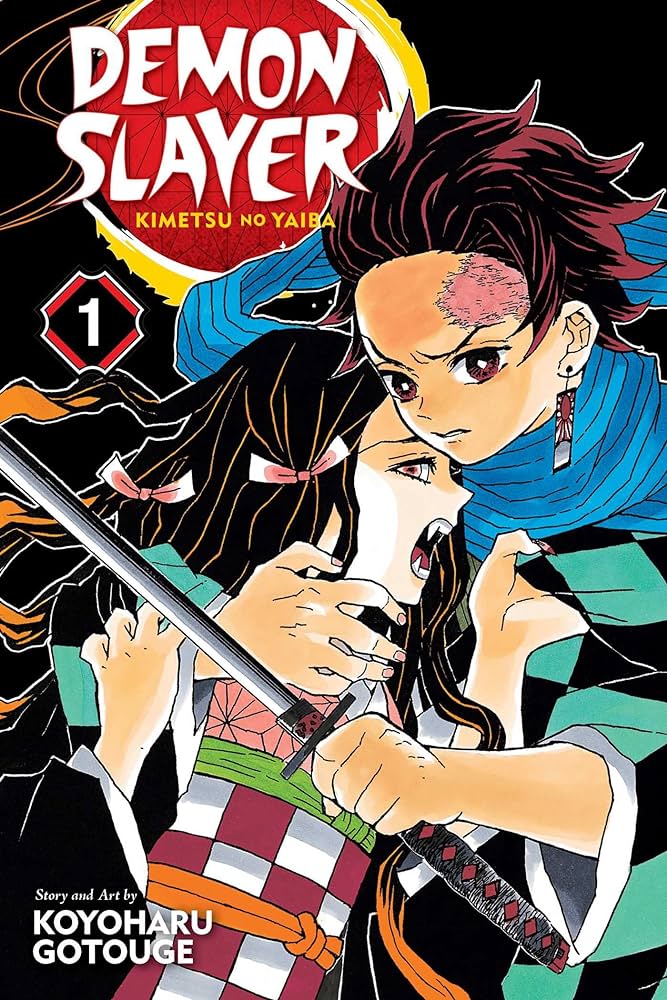 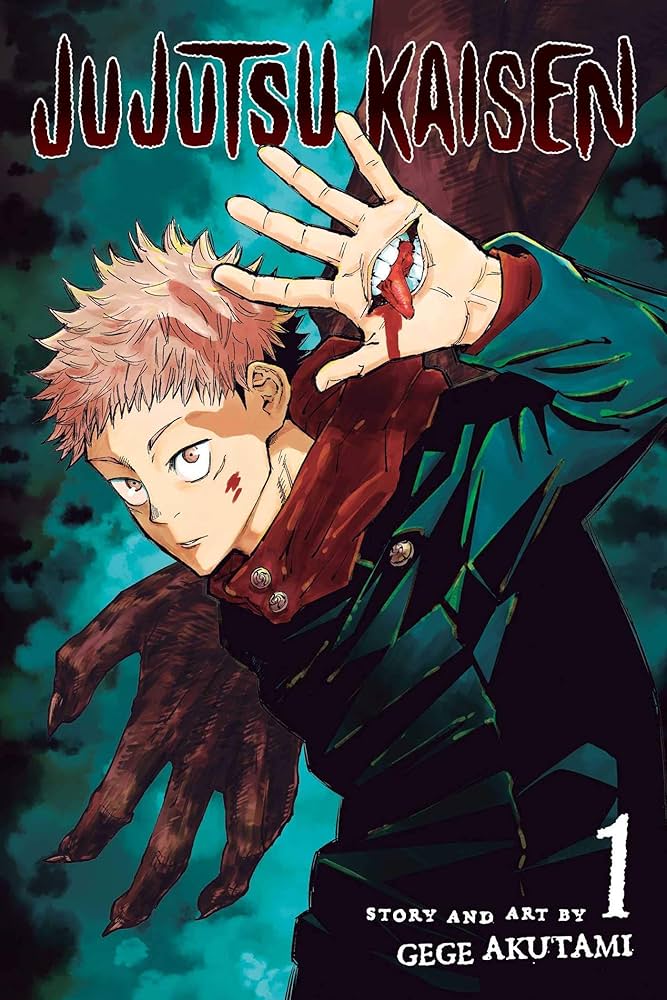 |
| その目だれの目? |
Aug 30, 2024 9:12 AM
#49
Reply to Theo1899
Anjuro said:
It just feels very arbitrary.
It just feels very arbitrary.
Not really arbitary. Greek vocabulary entered the English language in different stages and from different and each one follows different conventions but they are (for the most part) consistent.
Plato came from Latin where 3rd declension nouns (Greek -ων nouns and many more) end in a long ō. Modern Greek Platonas came after the 3rd declension collapsed and was assimilated into the other two.
Aristotle came from Latin through French hence the weird ending.
Pegasus came from Latin where the 2nd declension ends in -us. The e came from the ancient pronounciation of Greek H which was a long ē when the Romans encountered the word.
Gyros being a more recent word came directly from Greek hence the -os ending.
Kinda unrelated to tbe thread topic I just wanted to make clear why Greek words in English seem so inconsistent.
Theo1899 said: Kinda unrelated to tbe thread topic I just wanted to make clear why Greek words in English seem so inconsistent. No no, I was not referring to the conventions for how the vowels and consonants were changed, I was saying that it would be very arbitrary if a word like odyssey was "sufficiently english" to not be translated in the way OP feels the need to translate Japanese terms, but gyros was not deemed as sufficiently english because no changes occured, so it had be translated to something like "meat roll". Well anyway, that is certainly some interesting context that I was not aware of, and certainly a nice addendum for anyone interested. |
Aug 30, 2024 5:42 PM
#50
| For me it's a matter of convenience. Writing "other world" takes too long than to write "isekai". On the other hand, I won't write "Mobile Suit Gundam" as "Kidou Senshi Gandamu".[ I guess I just write whichever my brain thinks is easier. And in case you don't know, the Romaji used by us foreigners is different than what Japanese people use. An example is when writing "tsu" we usually write it "tsu" but Japanese write it "tu". |
More topics from this board
» What anime you have rated a 10?illBeGone - Sep 24 |
46 |
by dndlion
»»
5 minutes ago |
|
» Are there Anime songs you like but haven't seen the anime?Dragevard - 1 hour ago |
3 |
by ISeeLifePeople
»»
7 minutes ago |
|
» Anime characters that look better in their manga adaptation or vice versa ?VabbingSips - 6 hours ago |
5 |
by dndlion
»»
11 minutes ago |
|
» yearly wrapped stats on MyAnimeListame - 34 minutes ago |
1 |
by Catalano
»»
22 minutes ago |
|
» Recovering some of the magic of broadcast TVvalico - 3 hours ago |
3 |
by valico
»»
37 minutes ago |







